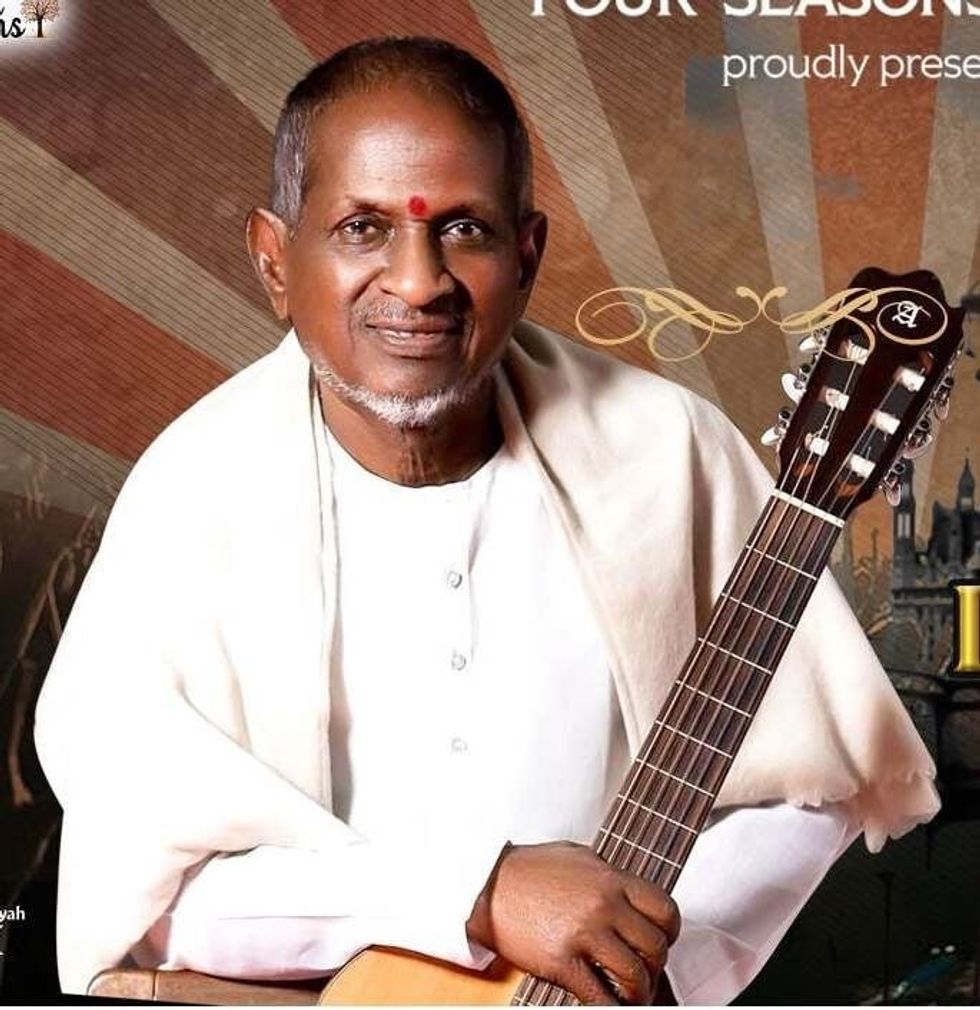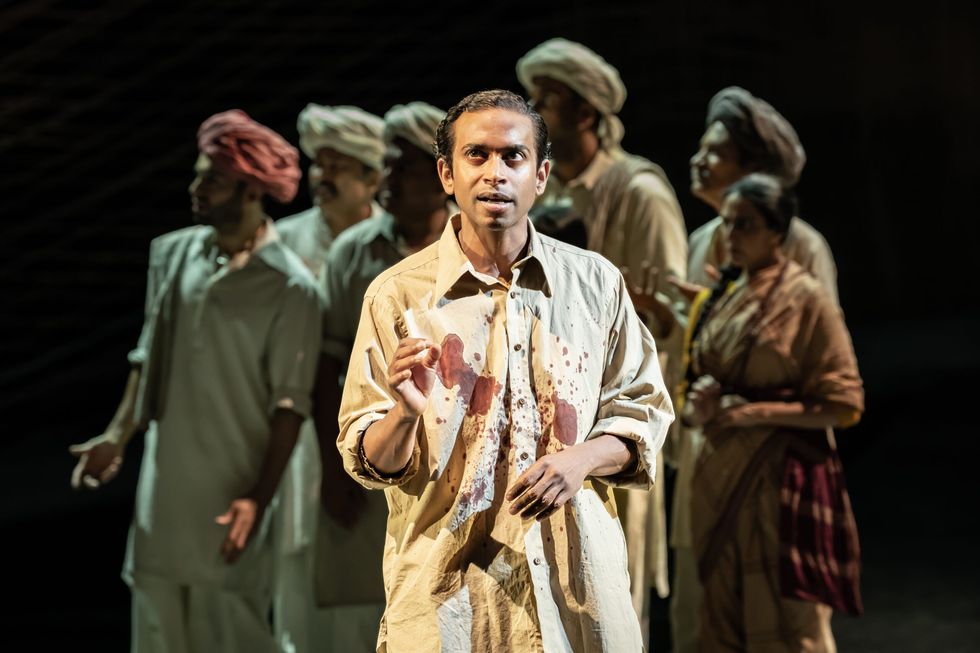Tigerbee takes flight with debut single Wildlife
British singer Tigerbee releases her debut single, Wildlife, on August 23. The former member of the acclaimed UK pop group Ra Ra Loud said she was inspired to write the song after seeing birds in the sky.
She told Eastern Eye: “I started to think about eagles because I love them. I especially noticed the trees and bees buzzing around me. A melody came into my head, and I started thinking this could be something. I went into the studio and worked hard with my producer to create a beat I was happy with. Then I finished writing the song and tied it into my own wild personal life.”
She described Wildlife as energetic, upbeat, and motivating. “Basically, no matter the ups and downs in your life, you can use those experiences to make you stronger and wiser, ultimately turning negatives into positives.”

Dhurandhar success not guaranteed for Ranveer Singh and Aditya Dhar
Ranveer Singh has had so many film projects cancelled or put on hold in recent years that it led to a huge career crisis. Meanwhile, Aditya Dhar hasn’t been able to direct a movie since his feature filmmaking debut, Uri: The Surgical Strike, became a blockbuster in 2019.
Both are hoping to breathe life back into their respective careers by teaming up for the action thriller, Dhurandhar, which also stars Akshaye Khanna, R Madhavan, Arjun Rampal and Sanjay Dutt.
Although both have a lot riding on this movie, success isn’t certain because the film is based around the now tired formula of Indian RAW agents, who will likely be battling a Pakistani or Muslim enemy.
Meanwhile, any Bollywood film Rampal and Dutt have been associated with has failed badly in recent years, which also isn’t a great sign.

September concerts promise red-hot music with star power
September has red-hot music concerts, including ones headlined by Punjabi superstar Diljit Dosanjh, Bollywood king Arijit Singh, dandiya queen Falguni Pathak, and B Praak. There is also the Rewind Queens tour with Alka Yagnik, Kavita Krishnamurthy, Anuradha Paudwal, and Alisha Chinai.
The first big UK tour of September will see Atif Aslam deliver shows at SEC Armadillo, Glasgow (6), Mattioli Arena, Leicester (7), and OVO Arena, London (8). The Pakistani pop sensation will perform his greatest hits, along with all-time classics, setting up an autumn season of awesome live music experiences for fans.

Ilaiyaraaja copyright battle win over Kanmani Anbodu is important
Whether it is stealing international songs without permission or destroying classics with awful cover versions, Indian film music has been lawless for many decades. That is why it was good to see reports that Ilaiyaraaja was able to successfully claim significant compensation from the team behind the record-breaking Malayalam film, Manjummel Boys, who had allegedly used his iconic 1991 song Kanmani Anbodu without authorisation.
Had the producers bought the rights legally, they could likely have got it for a lot less. Unfortunately, this episode won’t stop Indian film producers and music directors from stealing songs in the future. UK fans of veteran music legend Ilaiyaraaja can catch him in concert at OVO Arena in London on August 30.

Vitamin D returns with a run at Soho Theatre
Saher Shah’s debut theatre play, Vitamin D, returns with a run at Soho Theatre in central London from September 3-21 and is well worth watching.
Apart from writing the story of a woman going through a divorce who moves back in with her parents, she also heads an all-female cast. The Melina Namdar-directed show looks at the changing relationships between women, the complexities of emotional crises, British Asian culture and the stigma of divorce.
The writer, poet, and actress from east London is an exciting British Pakistani talent who is undoubtedly destined for big things in the future. Tickets for the show are on sale.
Visit Instagram: @VitaminDplay and X: @VitaminDtheatre.

Urooj Ashfaq shines at Edinburgh Fringe after Soho success
The remarkable rise of Urooj Ashfaq was illustrated by her work-in-progress It’s Funny To Me, drawing in big audiences at the Soho Theatre in London recently. The loveable comedian followed up those warm-up shows with a triumphant return to this year’s Edinburgh Fringe, after her history-making win in 2023.
She is part of an exciting new generation of Indian stand-up stars lighting up the international scene and inspiring others to follow in their path-breaking footsteps.
The Soho Theatre deserves a lot of credit for being at the forefront of providing a platform for top Indian talents like Urooj to flourish.

Sobhita Dhulipala’s Hollywood breakthrough and new engagement
After years of relative anonymity, Sobhita Dhulipala gained attention for her supporting role opposite Dev Patel in the acclaimed Hollywood film Monkey Man and subsequently opened the doors to international fame.
The Indian actress got further attention recently when she got engaged to popular south Indian film star, Naga Chaitanya.
It will be interesting to see if she capitalises on the growing attention around her and finally takes on lead roles. Hopefully, Chaitanya will be a supportive husband.

Hiran Abeysekera lands role in The Magic Faraway Tree
Hiran Abeysekera has had a phenomenal stage career that has included lead roles in acclaimed productions such as Life Of Pi, The Father and the Assassin, and Behind the Beautiful Forevers, but he has not got the film or TV projects his immense talent deserves.
That could now change after landing a key role in The Magic Faraway Tree, a movie based on author Enid Blyton’s The Faraway Tree book series.
He joins a strong star cast as the Angry Pixie in the film, which will be a new chapter for the widely acclaimed Asian actor who has delighted theatre-goers with his performances.




